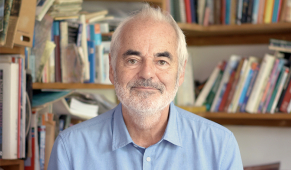Covid-19 reader: 14 January
Lack of support for care sector ‘negligent’
National Care Forum, survey
 The clear focus for the government’s policies around Covid-19 – and dealing with the Omicron variant – is based around not overwhelming the NHS. But the social care sector warned this week that it must not be forgotten about, describing the current situation as ‘grim and relentless’.
The clear focus for the government’s policies around Covid-19 – and dealing with the Omicron variant – is based around not overwhelming the NHS. But the social care sector warned this week that it must not be forgotten about, describing the current situation as ‘grim and relentless’.
Omicron and limitations of government support were having a real impact now, not-for-profit care sector body the National Care Forum (NCF) said this week. Two-thirds of home care providers responding to a survey said they were now having to refuse new requests for home care. And more than four in 10 care home providers are closed to new admissions, with one in five handing back existing care packages.
Overall, the providers taking part in the survey reported an 18% vacancy rate compounded by a 14% absence rate as a result of Omicron. The vacancy rate has been made worse by the policy to mandate vaccination as a condition of deployment. And delays to polymerase chain reaction (PCR) tests and insufficient access to lateral flow tests were also exacerbating the shortages
The staffing difficulties are putting increased pressure on remaining practitioners to pick up extra shifts. Providers are also increasingly turning to staffing agencies, which is increasing costs. Some providers said they were being quoted hourly rates of over £30 for frontline staff and up to £50 an hour for nurses.
Providers said they were ‘firefighting every day’ and others are adopting contingency plans that involve asking families and volunteers to help out.
Vic Rayner (pictured), NCF chief executive, said that it was unacceptable to see such enormous pressures on the care sector two years into the pandemic.
‘The adoption of a strategy by government that gives social care the crumbs from the table in an unrealistic hope that somehow it can continue to operate regardless of meaningful attention is negligent,’ she said. ‘The continual drip feed approach to funding, which as a result of bureaucracy fails to reach providers in a timely manner, is indicative of an approach that does not properly value the people who receive or deliver care.’
With frontline workers describing the situation as ‘grim, difficult and relentless’, Ms Rayner called for policymakers to properly appreciate the role of social care, which also helped to alleviate pressure on the NHS.
Calls to delay mandatory vaccination policy
Royal College of Nursing, statement
Changes to the self-isolation period for people testing positive for Covid-19 – reducing from seven days to five days – should help alleviate staffing pressures in the NHS, where vacancies and absences are also wreaking havoc. However, there are increasing concerns that the government’s policy of mandatory vaccination for all health and care staff will further intensify already chronic staff shortages.
The Royal College of Nursing this week called on health secretary Sajid Javid to delay the implementation of mandatory vaccination in the NHS.
The college supports the use of vaccines against Covid and most health and social care staff are double vaccinated. However, the college said that dismissing unvaccinated nursing staff – the consequence of not complying with the mandatory requirement if staff cannot be redeployed – would be an ‘act of self-sabotage’.
The government’s own impact assessment, suggested that some 73,000 NHS staff in England could lose their jobs as a result of the policy. And there have been reports of some trusts with more than 1,000 staff still unvaccinated. To meet the requirement to be vaccinated by the end of March, staff would need to have had their first dose of vaccine by the first week of February.
The RCN said the NHS in England was already operating with nearly 40,000 registered nurse vacancies. And the Covid pandemic had put nursing staff under ‘unrelenting pressure’ for the last two years.
‘We’re calling on the government to recognise this risk and delay a move which, by its own calculations, looks set to backfire,’ said RCN chief executive Pat Cullen. ‘To dismiss valued nursing staff during this crisis would be an act of self-sabotage.’
She added that encouraging people to get vaccinated was the best way to boost vaccine take-up. ‘Nursing staff, who are well placed to understand people’s concerns and are highly trusted by them, have led the Covid-19 vaccination programme and have a key role to play in addressing any concerns people may have about being vaccinated.’
The House of Lords Secondary Legislation Scrutiny Committee last year said the Department of Health and Social Care had not provided any contingency plans to cope with staff losses that may result from the policy.
How will the Omicron variant pan out?
Radio 4, programmes/podcasts
The World Health Organization warned this week that half of the population in its Europe and central Asia region will have caught the Omicron Covid variant within the next six to eight weeks. The UK is certainly contributing to this major wave of infections with daily Covid cases remaining above 100,000 and having reached more than 200,000 at one point in January.
Hospitalisations have also increased – with the seven-day average for daily admissions more than doubling since a month ago. But the Omicron variant, while more infectious, does appear to be having a lesser impact than the previously dominant Delta variant – although for some parts of the population it remains just as serious.
Statistician David Spiegelhalter (pictured), chair of the Winton Centre for Risk and Evidence Communication at the University of Cambridge, told BBC Radio 4’s More or less this week that there were good and bad aspects of the variant. ‘It is hugely infectious – we saw the numbers of cases [in the UK] and still in other counties they are absolutely shooting up,’ he said. ‘But we have also seen that it is a milder virus – it is inherently milder – and studies have shown that now. But also, because of the amount of vaccination in the population, the effects have also practically been less in terms of the severe outcomes.’
Many people have looked to South Africa, where the variant was first detected, for clues as to how Omicron could pan out in other countries. In South Africa, there were far fewer hospitalisations and deaths related to Omicron than with previous waves.
Azra Garni, professor of epidemiology at Imperial College London, told another Radio 4 programme – Inside Health – that the numbers were coming out slightly different in the UK. ‘We think our best estimate of the reduction of risk in terms of hospitalisations is about 50% – so it is 50% less severe than the Delta variant,’ she said. This compares with 75% in South Africa, where the population had a high level of background immunity due to a large Delta wave last year.
Cases are now believed to be close to peaking and may already have peaked in some areas such as London and in some age groups. ‘Most of us feel relatively optimistic that this could be the last really big wave, without discarding the possibility that in the future there may be other variants, and this level of immunity may well be helpful protecting against any future variants,’ she added.
While there have been rapid rises in hospital admissions, with many requiring oxygen support, there has not been the same rise in intensive care admissions or mechanical ventilation. However, she said the country would have to monitor if this pattern was maintained as the variant spreads to older age groups.
But given the WHO prediction for Omicron spread, what are the chances of catching it? Professor Spiegelhalter thinks it will be hard to avoid. ‘I don’t think I have had it, but I assume I am going to get it sometime and then will continue to get it…it won’t be the last time,’ he told More or less. ‘I’m avoiding trying to get it at the moment, but I don’t think I’ll be able to do that forever. To try to avoid it forever is going to be incredibly difficult in the future.’
And back on Inside Health, Eleanor Riley, professor of immunology and infectious disease at the University of Edinburgh, also suggested an inevitability about catching Omicron for many people. ‘If you are out and about. If you are mixing with children and people under 40, where the virus is rife, I think it will be really difficult to avoid it,’ she said. This may not be the case for people of a slightly older demographic who spend a lot of time at home and socialise with people of the same age. ‘They might escape it and, if the peak comes and goes quite quickly, there will be a small group of people who by chance and because of their lifestyles manage to avoid it,’ she added.
Related content
The value masterclass shares examples of organisations and systems that have pursued a value-driven approach and the results they have achieved.
This webinar series offers colleagues of ICS organisations the opportunity to discuss common priorities, challenges, and successes within their field.